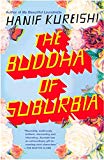
The Buddha of Suburbia is said to be very autobiographical. It is about Karim, a mixed-race teenager, who is desperate to escape suburban South London and make new experiences in London in the 1970s. Gladly, he takes the unlikely opportunity when a life in the theatre announces itself. When there is nothing left for him to do in London, he stays in New York for ten months. Returning to London, he takes on a part in a TV soap opera and the book leaves its reader on the verge of the 1979 general election (the defeat of Jim Callaghan's government on a motion of no confidence is specifically mentioned later in the novel).
The suburbs are "a leaving place" from which Kureishi's characters must move away. To Karim, London—even though it is geographically not far away from his home—seems like a completely different world. Therefore, his expectations of the city are great.
In The Buddha the move into (and later through) the city is like an odyssey or pilgrimage. On the first page Karim introduces himself as follows: "My name is Karim Amir, and I am an Englishman born and bred, almost". This motif is reinforced throughout the novel.
Pop music is an important theme in Kureishi's novels. One could even say that his novels have a soundtrack. London itself is associated by Karim to a sound. "There was a sound that London had. It was, I'm afraid, people in Hyde Park playing bongos with their hands; there was also the keyboard on The Doors' "Light My Fire". There were kids in velvet cloaks who lived free lives".
Through his work with two theatre companies, Karim gets to know new people from completely different backgrounds, like the working-class Welshman Terry who is an active Trotskyist and wants him to join the party, or Karim's lover Eleanor who is upper middle-class but pretends to be working-class. Through the latter group of people, surrounding Eleanor or Pyke (a strange theatre director), he realises that they are speaking a different language, because they received a good education, which was not valuable in the suburbs.
In The Buddha other characters and their struggle to make it in London are described, too. Kureishi portrays Eva, as a social climber at war with the city: "Eva was planning her assault on London. […] she was not ignored by London once she started her assault. She was climbing ever higher, day by day. […] As Eva started to take London, moving forward over the foreign fields of Islington, Chiswick and Wandsworth inch by inch, party by party, contact by contact". Later in the novel the maincharacter's father (an Indian immigrant, a boring bureaucrat living with his family in a grey London suburb) is suddenly discovered by the London high society, that is hungry for exotic distractions, and so he becomes their Buddha-like guru, though he himself does not believe in this role. His son does not believe in him either and, at the same time, has his first erotic experiences.
Within the problems of prejudice and racism lies one of the themes of initiation novels: the question of identity. Furthermore, London seems to be the perfect setting for the protagonists' "often painful growth towards maturity through a range of conflicts and dilemmas, social, sexual and political." (Bart Moore-Gilbert, 2001, 113) These characterisations mark Kureishi's novels as examples of Bildungsromane and novels of initiation.
Even though The Buddha is set in the 1970s and ends just before the Thatcher era begins, Kureishi was writing it under the direct influence of the outcome of Thatcherism. It is not surprising then, looking back, that he can see the roots of conservatism already in the '70s.
Already have an account? Log In Now